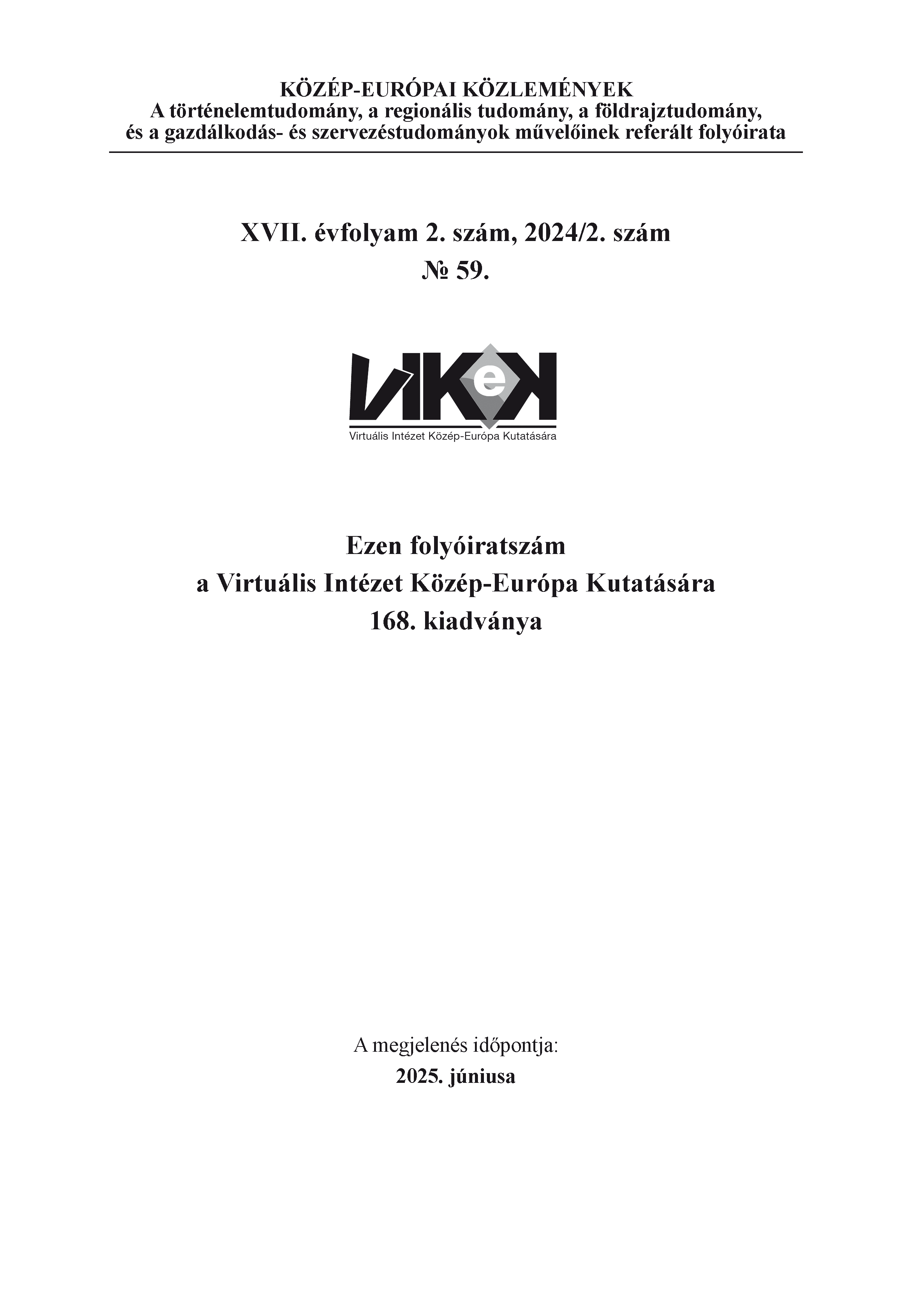A gazdasági újjáépítés nehézségei Közép- és Kelet-Európában a második világháború után (1945-1948) Csehszlovákia, Lengyelország és Magyarország összehasonlító elemzése
Main Article Content
Absztrakt
After the Second World War, Central and Eastern-Europe was subordinated to the Soviet empire, which had profound impacts both economically and politically. The main aim of the USSR was to abolish the economic pillars of independence in all countries of the region. Besides war damages and human losses, Central and Eastern Europe was hit by a general scarcity of basic goods, foodstuffs, and raw materials. Measures introduced within the war economy between 1939 and 1945, including the compulsory deliveries of agricultural products and their central distribution, as well as price and wage regulations were retained in the immediate postwar years. Economic recovery in the defeated countries of the region (Hungary, Bulgaria, and Romania) was hindered by war reparations. Reparation liabilities and deliveries to the Soviet Union amounted to 17 per cent of national income, which diverted substantial resources from the national economy during the reconstruction period.
The objective of the paper is to give an overview about the challenges of economic and financial reconstruction in Czechoslovakia, Poland, and Hungary in the years 1945-1948. First, the background of monetary reform will be analysed by highlighting the main differences between the three countries of the region. Then, it is essential to evaluate the outcomes of economic recovery by placing emphasis on the key characteristics of the selected countries. Due to length constraints, the essay will not focus on the consequences of the nationalisation process in Central and Eastern Europe.
